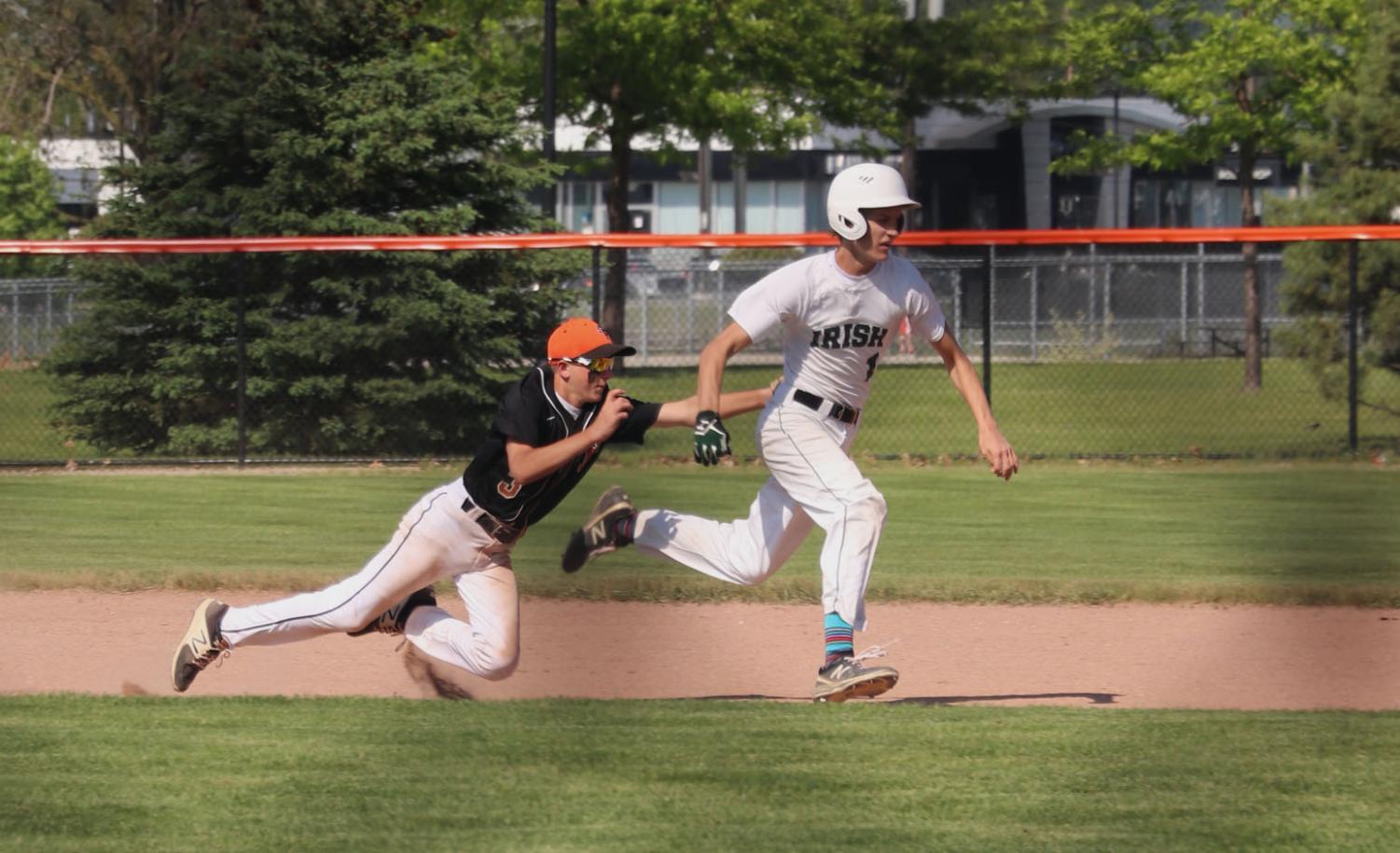Starting athletes young: the positives and negatives
June 6, 2018
Playing sports at a young age leads to beneficial outcomes
Playing sports in the pros has been most young kids dream for years and years, yet most of them fail to get there. They give up and stop trying. But if one plays sports at a young age it can give them a drive and passion for it. It has beneficial entities also. It can teach countless lessons and bring people together. Playing sports at a young age can provide mental benefits such as the ability to complete hard work, and give a sense of accomplishment after one has completed a task.
Starting sports at a young age can drive an athlete to work hard and put maximum effort into anything they set their minds to. These abilities can be given at any age but it can be beneficial to come in a person’s youth. That and more is why it is better to start kids young with sports.
Having an athletic advantage at a young age is one reason why kids should play sports in their youth. It can also give the athlete a dominance factor when trying out for sports at an older age when others are clueless on how to play. The athlete will become a leader when the coach uses him as an example of how to do something. Being in a physical shape early can produce a mentality that makes the youth want to be in good condition and have a leadership role on the team.
In a society full of factors such as depression and low self-esteem, having confidence in oneself is huge. Being active in sport can give that to a person. It can give a backing for those that may not have much going on for them. People who get filled with rage and anger, sports give an opportunity to take that anger out in a healthy way. It is no different for the youth. Maybe an annoying sibling has a young one on his or her nerves, or maybe a difficult parent. Participating in sports is a chance to release that anger. And in most cases, it will make the athlete perform even better. It gives the athlete a sense of belonging.
According to the National Center for Education Statistics, children who play sports in high school are more likely to be academically successful. They are more likely to graduate high school and more likely to attend college through scholarships giving students hopes to further their athletic career.
The only way that an athlete to make a high school team is to be talented enough, which comes from years of experience. So, in a way, playing young and getting a good foundation from sports will help create a more successful life for the athlete; nothing can beat that.
Playing sports creates a solid foundation. It can instill a mindset for the athlete that they can do anything they can set their mind to. It can help rid of problems that can cause depression, high anxiety, and stress. Most importantly, it helps give the youth a start for their future. It gives opportunities to kids that may not have the opportunities without sports. It will give kids a foot in the door when it comes to the workplace, it gives teamwork capabilities, and generates a more successful life.
Starting athletes young is detrimental to their development
Fifty years ago, neighborhood kids came together to play a game of baseball for fun; emphasis on the fun. Nowadays, kids are joining select travel teams just at seven years of age for intense training, not for the fun. This upsurge of specialization in sports among young children in recent decades has presented a multitude of negatives in the early stages of life.
In America, on average 71.6 percent of kids from ages six to 12 are either involved in a team or individual sport on a weekly basis according to the Aspen Institute Project Play. If a child has three practices a week with additional games or tournaments, that is an average of 10 hours a week training for their sport all year round.
All of the hours put into athletics are no longer for pure enjoyment, but only for the hope of success. The goal of playing at a collegiate level consumes the child’s life. Soon, all the child knows is practice, games and tournaments instead of experiencing significant moments with friends or family.
In most cases, when kids commit to intense sporting programs at such young ages, it is forced upon the child by their parents. All around us, parents are trying to live their glory days through their children. No parent wants their child, the individual that represents them the most, to have the most inadequate performance on the team. This leads to intense pressure and criticism inflicted by the parents on to their child, potentially causing altered relationships. Parents must let their children fall and get back up again, learning from their mistakes, without pushing them down further.
A majority of an athlete’s social life takes place at their training facility, and because of this, many friendships are built with teammates. Yet, these friendships are built in a highly competitive environment. Whether competing for the starting position or playing time, they are always competing with a teammate, a friend. Eventually, they begin to view that friend as a threat. This can lead athletes to have arrested behavioral development and in some cases become socially isolated.
Many athlete’s training in the same sport for numerous years lead the individual to become physically exhausted and just simply bored with the repetition, also known as burnt out.
According to the LTAD (long- term athletic development), specialized training with the intent of competing should not be implemented until age 15. With children now joining travel teams at the age of seven, they aren’t playing the sport in their earlier stages for fun, but instead for the intense training right off the bat which eventually leads one to become burnt out.
There is always going to be the risk of injury while playing sports, but that risk is dramatically increased in younger athletes.
On average, according to Medical News Today more than 3.5 million children age 14 and younger receive medical treatment for sports injuries annually. Imagine stretching a rubber band that is already partially ripped, it would snap easier. Essentially, that is what children are doing to their bodies and muscles. Overusing muscles year round while still developing is the recipe to disaster. For many athletes, these injuries are what concludes their short lived careers.
Overall, specialized training at a young age presents a multitude of downsides. Finding the perfect balance can prevent children from becoming burnt out, sustaining injuries and intense pressure and stress.

